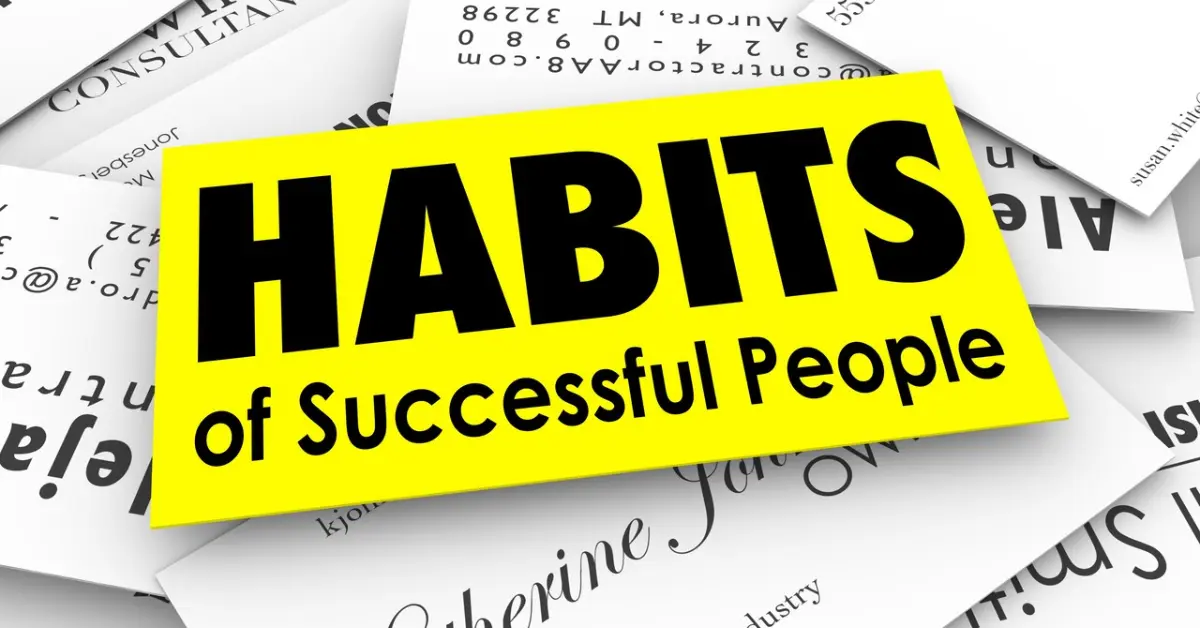Freelancing has become a popular career choice in today’s digital era, offering unmatched flexibility and independence. While some people step into freelancing due to necessity, many embrace it intentionally, seeking greater control over their work and lifestyle. Despite the misconception that freelancers struggle financially, a large number report earning more than they did in traditional employment. Their success is not just about talent, but also the smart habits they develop. These habits are the foundation of a thriving freelance career.
1. They Prepare in Advance for Their Freelance Career
Jumping straight into full-time freelancing after leaving a job can be risky, especially if you haven’t built a solid foundation. Without a strong portfolio, client base, or financial cushion, the pressure to earn quickly can lead to settling for low-paying or unfulfilling work. It’s much wiser to begin freelancing on the side while still employed, allowing time to develop your brand, gain experience, and secure reliable clients.
When I started freelancing, I balanced it with my university schedule and a part-time job. This approach gave me room to experiment, learn from small projects, and slowly build a steady stream of clients. By the time I considered going full-time, I had enough confidence and income to make the leap.
2. They Have a Healthy Work-Life Balance
Successful freelancers not only focus on doing what they love, but they also understand the importance of maintaining balance in life. They prioritize their well-being, knowing that mental and physical health are the backbone of long-term productivity. From investing in proper rest and nutrition to staying socially engaged, they make lifestyle choices that fuel creativity and resilience. Many also create routines that include hobbies or mindfulness practices to avoid burnout and stay motivated.
In my own journey, I realized early on that overworking led to exhaustion and lack of inspiration. I started setting boundaries, taking regular walks, and even joined a local reading club to stay socially connected. These small changes made a big difference in both my energy and the quality of my work.
3. They Have the Right Tools for the Job
It’s not only about having a reliable laptop and a comfortable workspace though those are definitely important. What truly sets successful freelancers apart is their smart use of digital tools that enhance efficiency and workflow. From project management platforms and communication apps to time trackers and productivity boosters, these tools help freelancers stay organized, meet deadlines.
When I began freelancing, I struggled to keep track of deadlines and client feedback. Once I started using tools like Trello for task management and Clockify for time tracking, everything changed. My workflow became smoother, and I was able to take on more projects without feeling overwhelmed.
4. They Never Stop Learning New Skills
Successful freelancers thrive by embracing a growth mindset and constantly updating their knowledge to stay ahead in a competitive industry. They actively seek out new skills and stay informed about the latest tools, strategies, and market demands. This continuous learning not only helps them deliver better results but also opens doors to higher-paying opportunities and niche markets. For instance, a content writer who masters SEO, CMS platforms like WordPress, or digital marketing techniques can expand their services and increase their value to clients. In freelancing, sharpening both creative and business skills is essential because you’re not just offering a service, you’re running a personal brand.
When I started freelancing, I was mainly focused on basic content writing. Over time, I realized that learning SEO and social media strategy could set me apart. I took online courses, experimented with my own blog, and slowly integrated those skills into my client work. Not only did I start getting better projects, but I also felt more confident pitching myself to potential clients.
5. They Diversify Their Income
One of the most important lessons in freelancing is to never depend too heavily on a single client, no matter how consistent or well-paying they are. Relying on just one source of income can be risky if that client suddenly stops needing your services, your entire financial stability can be shaken. That’s why smart freelancers build a diverse client base and seek additional income streams.
Many expand their reach by launching blogs, offering online courses, or monetizing their knowledge through ebooks and digital products. This not only boosts income but also builds long-term sustainability.
I learned this the hard way when one of my highest-paying clients ended a contract unexpectedly. Luckily, I had a few smaller gigs running alongside and had just started building a blog that later attracted new opportunities. Since then, I’ve made it a rule to always keep multiple income channels open.
6. They Proactively Promote Themselves
While client referrals are valuable, relying solely on word of mouth can limit your growth. Taking a proactive approach to marketing yourself is key to attracting more consistent and higher-quality opportunities. Depending on your field, this could mean regularly showcasing your work on platforms like LinkedIn, Instagram, or Behance, sharing valuable insights, or even creating content that positions you as an expert in your niche.
Building a strong online presence through a personal brand not only highlights your skills but also earns the trust of potential clients and collaborators. It’s an investment that pays off over time.
In my case, I started by sharing my freelance journey and digital marketing tips on LinkedIn and Instagram. Slowly, people began reaching out for advice and collaboration. One of my most loyal clients actually found me through a carousel post I made about SEO basics. That’s when I truly realized the power of marketing your work consistently.
7. They Have a Clear Plan
Freelancing demands dedication, especially in the beginning when you’re building your reputation and portfolio. But once you’ve gained some traction, it’s essential to shift from constant hustle to working with clear, structured goals. Setting realistic, achievable milestones whether daily, weekly, or monthly helps you stay focused and measure progress toward your long-term vision. These goals can range from securing a certain number of clients to reaching a specific income target or growing your online presence steadily.
In my early freelancing days, I worked long hours without direction and quickly felt burnt out. Eventually, I started setting monthly income goals and weekly content deadlines, which gave me structure and purpose. This approach not only reduced stress but also helped me see consistent growth in both my earnings and online reach.
8. They Know When to Say “No”
One of the most crucial habits to develop as a freelancer is the ability to say “No.” While it might feel difficult at first, setting boundaries is essential for maintaining a healthy work-life balance. Saying “No” to clients means avoiding projects that aren’t a good fit or don’t pay well, and protecting yourself from unnecessary work overload. It’s also important to set limits with friends and family to respect your time and reinforce the seriousness of your freelance career.
In the beginning, I had a hard time turning down projects, even when they were below my rate or didn’t excite me. I quickly learned, however, that taking on too many of these projects left me exhausted and uninspired. Now, I prioritize my time more effectively and communicate my boundaries clearly.
Conclusion
Success in freelancing comes from intentional habits like planning ahead, learning constantly, and maintaining clear boundaries. By applying these eight habits, you can build a stable and fulfilling freelance career with long-term growth.
FAQ
1. How do I know when I’m ready to go full-time freelancing?
You’re ready when you have a consistent client base, stable income, and a strong portfolio. Transitioning gradually while working part-time can help build confidence and security before going full-time.
2.How can I stay motivated as a freelancer when the work slows down?
Use slow periods to sharpen your skills, update your portfolio, or explore new marketing strategies. Staying proactive helps you stay engaged and prepared for new opportunities.

